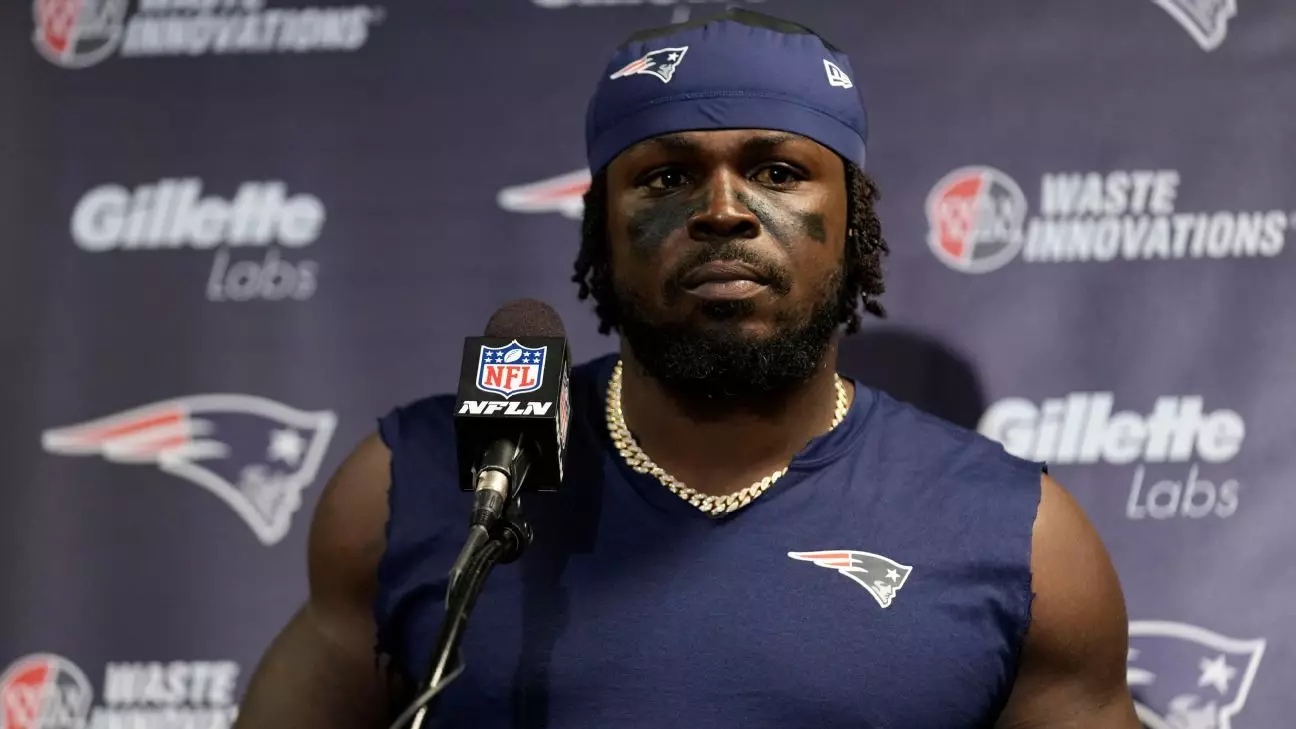The recent events surrounding New England Patriots safety Jabrill Peppers underscore not only the complexities of the legal system but also the multifaceted nature of athlete conduct and accountability. After pleading not guilty to serious charges such as strangulation and drug possession, Peppers has been removed from the NFL’s commissioner exempt list, allowing him to participate in team activities while the league and judicial investigations continue. This situation raises crucial questions about the intersection of sports, law, and personal conduct, revealing that the public and the organization must remain vigilant in assessing implications of such allegations.
The Immediate Aftermath of the Incident
The incident that led to Peppers’s legal troubles occurred in early October when police responded to reports of a disturbance in Braintree, Massachusetts. The allegations against Peppers are severe, including multiple charges of assault and battery, strangulation, and drug possession. Furthermore, it was reported that a woman involved claimed that he choked her multiple times during a heated altercation. The police records paint a troubling picture, suggesting physical aggression that is hard to overlook, raising the stakes both legally and socially for the player and the team.
While Peppers awaits trial, scheduled for January 22, his attorney has made a series of claims in court, attempting to paint a narrative that might mitigate the severity of the situation. His defense indicates that they possess video evidence potentially contradicting the woman’s allegations. Such claims, however, must be viewed through a lens of skepticism, as the complexities of domestic disputes seldom lend themselves to clear-cut interpretations or conclusions.
As athletes become public figures, their actions inevitably attract scrutiny not just from fans, but also from the media and various organizations. The gravity of Peppers’ legal situation lies not only in the specifics of the allegations but also in their potential fallout on his career—a reality that significantly weighs on professional athletes. The NFL has made it clear that conduct standards will be upheld, but Peppers’ current status as a player presents a paradox: while he is momentarily cleared to play, his legal battles are far from resolved.
Adding to the complexity are the claims regarding a proposed settlement related to the case, with Peppers’ legal team reportedly rejecting a $10.5 million demand made by the plaintiff. This information serves as a potential flashpoint in public relations, raising questions about the motivations behind the allegations. However, those accusations are mitigated by statements from the plaintiff’s attorneys, who argue that they did not seek such an astronomical sum to avoid litigation. The pursuit of a civil settlement often opens another dimension in these cases, highlighting the emotional and financial ramifications of domestic violence allegations.
The NFL’s Personal Conduct Policy gives the league discretion to pursue investigations that transcend legal proceedings, focusing on athlete behavior and implications for organizational integrity. Peppers’ case will be a litmus test for how seriously the NFL addresses domestic violence, especially following the scrutiny the league has faced over its handling of similar incidents in the past. Coach Jerod Mayo’s comments reflect an organization that is attempting to balance due process with the imperative of maintaining a stance against any form of domestic violence.
As many analysts point out, the situation involving Jabrill Peppers is emblematic of a larger issue within professional sports. Athletes facing allegations of domestic violence must navigate challenging waters including legal proceedings, public scrutiny, and team loyalty. The balance between personal accountability and organizational reputation is delicate, and how the Patriots choose to navigate these waters could rekindle historical debates about how professional organizations handle allegations against players.
Peppers, now a veteran player in his eighth year in the NFL, also faces the potential impact of these allegations on his legacy as a player. As a team captain previously admired for his leadership and skills, he finds himself at a crossroads that could define the rest of his career. Young athletes and fans often look up to these figures, imbuing them with ideals of sportsmanship and virtue. Instances like these severely challenge the perception of athletes as role models and compel all stakeholders—teams, leagues, and fans—to reconsider their benchmarks for accountability and integrity.
The unfolding situation regarding Jabrill Peppers serves as a stark reminder of the intricate, often convoluted relationship between personal conduct, legal affairs, and professional sports. As this case progresses, it will be essential for the NFL and the New England Patriots to demonstrate a commitment to upholding standards that respect not only the legal process but also the ethical implications surrounding domestic violence. The resolution of this case will have far-reaching effects, impacting not just Peppers’ future, but also shaping the ongoing conversation about the responsibilities athletes carry both on and off the field.


Leave a Reply